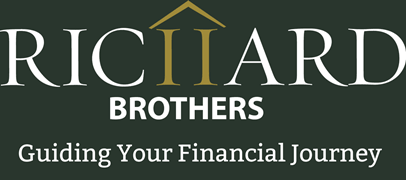 Bonds are a topic of long-standing fiscal debate for Maine residents.
Bonds are a topic of long-standing fiscal debate for Maine residents.
When people talk about Maine’s economy, they typically cite the preponderance of bond issues we have voted for as evidence that we have a spending problem. In early 2013, all three major credit rating agencies downgraded Maine’s credit rating, which means that Maine may need to offer higher interest rates on future bond issues in order to attract investors.
When you’re voting on bond issues or considering adding bonds to your diversified investments, it’s important to understand how municipalities use them to raise funds for projects, and how they could help you achieve your financial goals as an investor.
How Municipal Bonds Raise Funds For Projects
States, towns, counties, school districts and water districts, along with a variety of agencies and commissions, may issue municipal bonds. They allow a municipality to raise needed funds while benefiting from certain tax advantages: All interest paid is federally tax exempt, and also usually state tax exempt in the issuing state.
Municipal bonds are debt securities. When the state of Maine issues one, for example, the state is borrowing money and agreeing to make periodic interest payments to the investor.
Municipal bonds can be bought in various forms or packages, like mutual funds, closed-end funds, unit trusts and exchange-traded funds (ETFs), to name a few. All have unique differences that should be understood before investing.
These bonds fall into one of two types:
- General obligation (GO) bonds: These bonds may only be issued with voter approval. State GO bonds are secured by income, sales and other tax revenues. At the local level, GOs are typically secured by property taxes.
- Revenue bonds: These bonds do not require voter approval and are not backed by the full faith and credit of the municipality. Rather, revenue bonds repay their debt with the expected revenue from the project the bonds will fund.
The principal difference between the two bond types is how the debt is paid off.
There are a number of complex macroeconomic arguments for and against issuing municipal bonds. Here’s the gist of some common arguments:
- Bond financing will increase short-run aggregate demand, but eventually cause interest rates to rise and reduce investment due to the “crowding out” effect.
- Bonds will create a short-term stimulus, but the long-term effects are unpredictable.
- There is no difference between financing through bonds or taxes, as there is an implied reduction in consumption due to the future taxes required to repay the bond.
Whether or not you see bond financing as beneficial for Maine, municipal bonds are considered a relatively stable investment and are referred to as “fixed income” securities. When you purchase a bond, the issuer agrees to pay you a nominal yield, referred to as “the coupon rate.”
While the stability of municipal bonds gives them an important role in diversified investments, there are still some risks associated with bond trading. These include interest rate risk, inflation risk, reinvestment risk and credit risk.
Companies like Moody’s or Standard & Poor’s determine a bond’s credit risk. For example, if Moody’s assigns a borrower an AAA credit rating, they are considered to be of the highest quality and the least likely type of borrower to default on the debt. Moody’s currently rates Maine’s general obligation bonds as AA2.
Bonds with ratings of BBB and above are considered “investment grade,” while those with lower ratings are considered speculative, and must offer higher yields to attract lenders.
Overall, issuing bonds is an effective way for states to raise revenue for projects, and municipal bonds are often an excellent choice for investors, depending on your age and risk tolerance.
Comprehensive financial planning and wealth management must take into account how local events affect your investment strategy and retirement planning. If you’re a Maine resident or plan to retire here, our “Focus On Maine” blog series helps you understand the trends and issues that are shaping the financial future of Maine’s taxpayers.
Want to learn more about investing in Maine municipal bonds? We encourage you to contact Richard Brothers or schedule a free, 30-minute consultation with a financial professional.
Richard Brothers Financial Advisors



